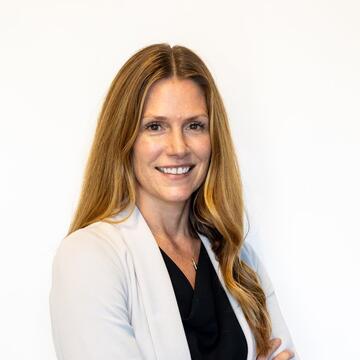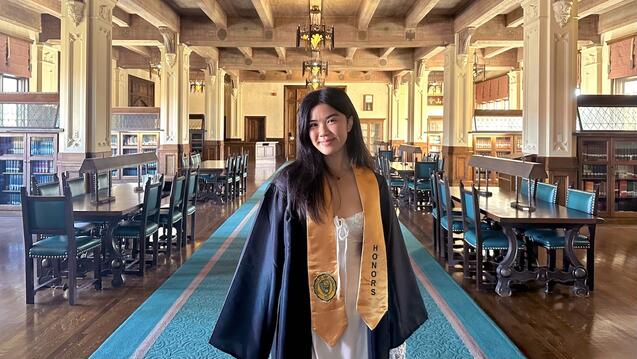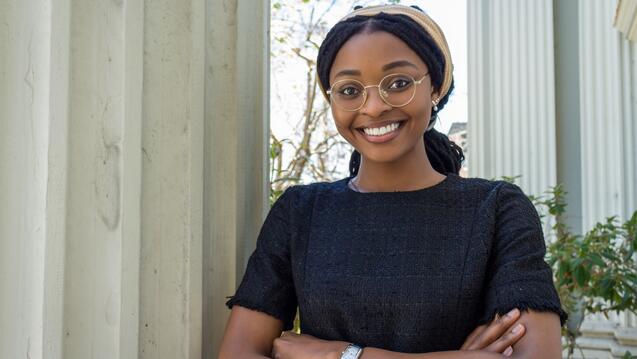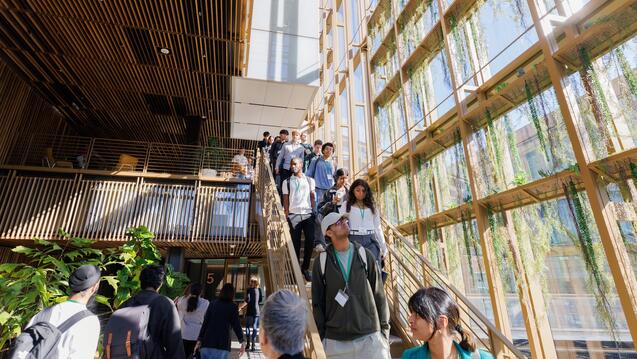
USF Grad Protects Kids on TikTok
Sarah Hawkins Brass ’02 is on a crusade against child abuse.
Brass is TikTok’s global head of child safety operations. An English major at USF, she went on to earn a law degree from UC Law San Francisco and worked as an assistant district attorney in San Francisco and later for the U.S. attorney’s office. Here, Brass talks about her work.

What do you do at TikTok?
I lead the Global Child Safety Team (CST). CST's mission is to prevent new and ongoing sexual abuse of minors by detecting and reporting sexual abuse, predatory behavior, and stopping the proliferation of sexual materials involving children. We do this by reporting incidents of child sexual abuse and exploitation on our platform to the National Center for Missing and Exploited Children, a central repository that provides our disclosures to law enforcement for investigation and intervention in unlawful or harmful activity against children.
My responsibilities include working with partners on our policy and product teams to make sure we are creating the safest platform possible for our users. This can range from supporting product teams who are building the systems that detect violative content, to making sure that the people who have to review this content have access to therapy and wellbeing support.
How did your time at USF contribute to the role you have now?
I chose USF because it's a university grounded in making the world a better place. I loved the mission, the professors, and the students. The connections I formed at USF still hold today in some of my best lifelong friendships. I try to bring those values — being mission-driven, empathetic, and connected — to every job that I have. In my current role, these values are key aspects of how I lead my team.
Communication is essential and being an English major helps in every aspect of what I do, from day-to-day communications with my colleagues to more formal proposals and reports. I've had four jobs since I finished law school, and in each of them, having the ability to tell a story and persuade with language is invaluable.
What practices could people adopt to better ensure their children's safety?
For parents, knowledge is key. Learn about the various platforms and the features they offer when deciding on a strategy for the safe use of social media. Be aware that, unfortunately, some predators lead minors off platform specifically to avoid the safety protections in place. Talk to your kids, monitor their phones, and if something feels "off" in any way, report it.
Specific to TikTok is our safety center, which lists all of the features and protections for youth. For example, the TikTok experience for teens under 18 is designed to be different than the experience for adults. All accounts for teens under 18 start out as private; a daily screen time limit is set to 60 minutes by default; only accounts for those ages 18 or older can go live; and accounts for teens under 16 don't have access to direct messaging or group chat.
What are the biggest challenges of your role?
The biggest practical challenge is that I do not have a tech background, so the learning curve in that regard has been pretty high. Luckily, I have found a few colleagues who are very patient teachers. At a more existential level, the fact that CSAM (Child Sexual Abuse Material) content and threats to children even exist is a lot to carry.
You’ve worked in the U.S. attorney’s office and in the Department of Police Accountability in San Francisco. What's been the most surprising thing about moving from the government sector to the private sector?
The diversity of thought. I am in awe of how brilliant my colleagues are and the different skill sets and mindsets we all bring to tackling these big issues. I always worked with talented and smart people, but we were all lawyers and law enforcement, so some shared ways of thinking. The vast array of expertise — engineering, public relations, policy, legal, product teams — is really inspiring.
What advice would you give to a USF student hoping to follow a similar career path to yours?
Have a mission — let it guide you. No job is perfect. Find the parts of your job where you want to make a difference. Value the perspectives of others and know that the single most important thing over the course of your career are the true connections that you make.


